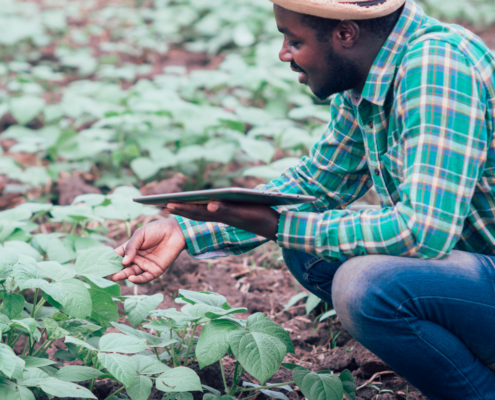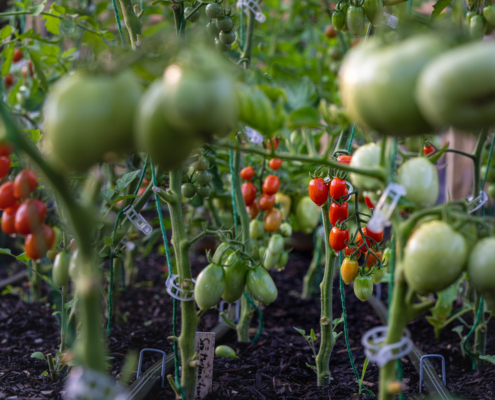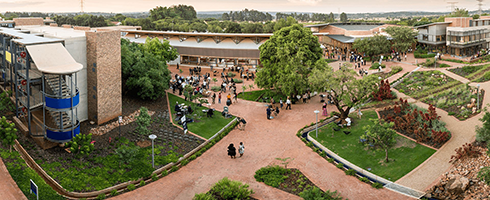 https://www.futureafrica.science/wp-content/uploads/2026/01/Untitled-LinkedIn-Post.png
1200
1200
mosimachewa
https://www.futureafrica.science/wp-content/uploads/2024/08/logo.jpg
mosimachewa2026-01-12 08:25:162026-01-12 12:50:32Call for Applications: PhD scholarship grants 2026 (UKUDLA)
https://www.futureafrica.science/wp-content/uploads/2026/01/Untitled-LinkedIn-Post.png
1200
1200
mosimachewa
https://www.futureafrica.science/wp-content/uploads/2024/08/logo.jpg
mosimachewa2026-01-12 08:25:162026-01-12 12:50:32Call for Applications: PhD scholarship grants 2026 (UKUDLA)Sustainable Food Systems
The Future Africa (FA) Sustainable Food Systems Research Chair (FA-SFS) was launched in January 2022 with multiple aims linked to Future Africa’s purpose of developing and unleashing the transformative potential of African sciences to inform and inspire a future of thriving African societies within a global context. In line with the FA focus on transformative, collaborative research that seeks to address complex real-world problems, FA-SFS has the following objectives:
- Establish and enhance research partnerships.
- Undertake cutting-edge transdisciplinary research to address societal problems and improve food systems.
- Contribute towards building the capacity and mentoring of early-career researchers.
- Establish an FA dialogue series on sustainable food systems.
- Establish and promote engagement in diverse multi-stakeholder platforms for sharing research findings and informing evidence-based policy development and advocacy.
Research Chair
Vacant
Future AfricaOur Current Programmes
African Research Universities Alliance Centre of Excellence in Sustainable Food Systems (ARUA-SFS)
The African Research Universities Alliance (ARUA) Centre of Excellence in Sustainable Food Systems (formerly ACoE in Food Security) was established in 2018 as a partnership between the host institution – University of Pretoria – and collaborating partner institutions – University of Ghana and University of Nairobi. The ARUA-SFS aims to create an engaging global network of talented researchers to move institutions forward in pursuit of a common goal. It is recognised that finding solutions to the food security and nutritional challenges in Africa is a huge and daunting task, and there are many local and internationally based organisations working in the African food and agriculture domain. The aim of the ARUA-SFS is not to duplicate efforts, but to create a critical mass of talented researchers working synergistically to maximise complementarity.
Feed, Protect, Care Global Collaborative PhD Platform
The Feed, Protect, Care Global Collaborative PhD Platform is a collaboration between the University of Montpellier and the University of Pretoria. This innovative response to the imperatives of open science and open education focuses on the interconnected societal missions of feeding, caring for, and protecting people, places, and the planet. The platform aims to strengthen the capacity of the global scientific community to inform and support critical transformations to ensure sustainable futures at local to global levels.
Qinisa Initiative
The Qinisa Initiative, is a regional programme hosted at Future Africa (University of Pretoria), in partnership with the Centre for Coordination of Agricultural Research and Development for Southern Africa (CCARDESA) and the Global Research Alliance for Agricultural Greenhouse Gases (GRA). Qinisa aims to Strengthening collaboration, research, and innovation in agricultural greenhouse gas management to support low-emission, climate-resilient food systems across Southern Africa.
UKUDLA
The African-German Centre of Excellence for Sustainable and Resilient Food Systems and Applied Agricultural and Food Data Science – was officially launched in January 2025. UKUDLA is a ground-breaking initiative dedicated to transforming Africa’s food systems through innovative research, capacity building, and knowledge transfer.
Food and Livelihood Resilience from Neglected Plant Species in Western and Southern Africa (FORENS)
FORENS aims to understand and assess the potential of neglected and underutilised plant species (NUS), with the aim of enhancing the resilience of agro-ecosystems and local communities in Western and Southern Africa to environmental change. The project seeks to produce knowledge that can be used to accelerate food production in Africa while contributing to climate-change adaptation, supporting agrobiodiversity, and improving human health through balanced diets.
Our Past Programmes
New Zealand Agricultural Greenhouse Gas Research Centre (NZAGRC) Greenhouse Gas Measurement (GGM) Project
NZAGRC GGM involves innovation and research on challenges in the agricultural sector, addressing issues such as sustainable agriculture, indigenous development, and climate change across southern Africa. The central focus is to support scientific capability and institutional capacity to track agricultural greenhouse gas (GHG) emissions in the region.
Climate, Land, Agriculture, and Biodiversity (CLAB-Africa)
The Climate, Land, Agriculture, and Biodiversity (CLAB-Africa) project is a Future Africa (University of Pretoria) initiative hosted under the African Research Universities Alliance (ARUA) Centre of Excellence in Sustainable Food Systems (ARUA-SFS). CLAB-Africa aims to provide a platform for Africa’s scientific community to contribute to the developmental work of African governments and development institutions in the form of science-based, actionable recommendations within four identified clusters:
- climate impact on food systems,
- land restoration and biodiversity,
- people-animal-ecosystems health and wellbeing,
- land-water-energy resources use.




Call for Applications: PhD scholarship grants 2026 (UKUDLA)
The African German Centre for Sustainable and Resilient Food Systems and Applied Agricultural and Food Data Science, which is funded by the German Academic Exchange Service (DAAD) with funds from the Federal Foreign Office (AA), the Federal Ministry of Research, Technology and Space (BMFTR) and the Federal Ministry of Agriculture, Food and Regional Identity (BMLEH) in Germany offers scholarships to German and African applicants to support a PhD-thesis research projects in Southern Africa in cooperation with one of our partner institutions.
Prof Frans Swanepoel concludes tenure as Future Africa Research Chair for Sustainable Food Systems
Future Africa bids farewell to Professor Frans Swanepoel, who concludes his tenure as Research Chair for Sustainable Food Systems at the end of December 2025.
The Tomato Paradox: When abundance meets shortage in Africa’s food systems
Marking World Food Day 2025, Dr Ololade Abdulrahman, a Research Fellow in the Future Africa Research Leadership Fellowship programme, examines Nigeria’s “Tomato Paradox” and calls for innovation to strengthen Africa’s agrifood systems.
UKUDLA launches first summer school on sustainable food systems and data science
The African–German Centre of Excellence for Sustainable and Resilient Food Systems and Applied Agricultural and Food Data Science (UKUDLA) hosted its first summer school from 14–24 September 2025 at the University of Western Cape (UWC) in South Africa. The programme brought together master’s, doctoral, and postdoctoral fellows from Southern Africa and Germany for an intensive two weeks of training, exchange, and collaboration.
Feed–Protect–Care Global PhD Collaborative platform hosts third training in SA
The third training of the Feed–Protect–Care Global PhD Collaborative Platform took place in Cape Town, South Africa, co-hosted by the University of Pretoria and the University of Montpellier. More than 50 doctoral scholars from across the world engaged in dialogue, peer learning, and experiential activities to advance sustainable food systems research and leadership.